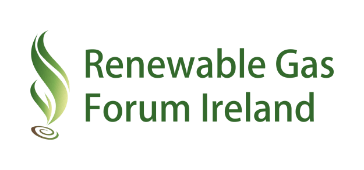Ireland Interdepartmental Hydrogen Working Group
The Interdepartmental Hydrogen Working Group was established in 2020 to enable greater collaboration and coordination across the departments and its agencies in respect to research and policy development of hydrogen in Ireland.
Read More
Its members include the Department of the Environment Climate and Communications, the Department of the Taoiseach, Department of Transport, Department of Enterprise, Trade and Employment, the Sustainable Energy Authority of Ireland, the Commission for Regulation of Utilities, EirGrid (the Electricity Transmission System Operator), Gas Networks Ireland (the Gas Transmission System Operator) and the National Standards Authority of Ireland.
The Hydrogen Accelerator
In the Staff Working Document (SWD/2022/230) accompanying the REPowerEU plan, the European Commission outlines a ‘hydrogen accelerator’ concept to scale up the deployment of renewable hydrogen, which will contribute to accelerating the energy transition and decarbonising the EU’s energy system.
Read More
The ambition is to produce 10 million tonnes and import 10 million tonnes of renewable hydrogen in the EU by 2030.
The focus of these actions is to accelerate the uptake of renewable hydrogen, ammonia and other derivatives in hard-to-decarbonise sectors, such as transport, and in energy-intensive industrial processes. Scaling up the development of hydrogen infrastructure and supporting hydrogen investments are also identified as key areas to support hydrogen uptake in the EU.
European Hydrogen Bank
The EU Commission has proposed to establish a global European hydrogen facility to create investment security and business opportunities for European and global green hydrogen production. President Von der Leyen announced a European Hydrogen Bank in her State of the Union speech in 2022 and the initiative was included in the Commission work programme for 2023.
Read More
The Communication on the European Hydrogen Bank (COM/2023/156), published on 16 March 2023, describes its concept, tasks and structure. The European Hydrogen Bank is a financing instrument run internally by Commission services. It is not designed to be a physical institution. The main objective of the facility is to unlock private investments in hydrogen value chains, both domestically and in third countries, by connecting renewable energy supply to EU demand and addressing the initial investment challenges. It will establish an initial market for renewable hydrogen, offering new growth opportunities and jobs.
On 23 November 2023, a pilot auction (competitive bidding) will be launched under the Innovation Fund, supporting the production of green hydrogen for European consumers. The terms and conditions for the pilot auction were published by the Commission on 30 August, allowing potential bidders to start preparing.
Furthermore, green hydrogen partnerships will facilitate the promotion of the import of renewable hydrogen from third countries and contribute to incentivising decarbonisation. Together, the European Hydrogen Bank and the green hydrogen partnerships aim at delivering a framework to ensure that partnerships established by the EU countries and the industry provide a level-playing field between EU production and third-country imports.
Hydrogen Energy Network
The Hydrogen Energy Network is an informal group of representatives from the energy ministries in EU countries that aims to help national energy authorities build on the opportunities offered by hydrogen as an energy carrier.
Read More
It acts as an informal platform to share information on good practices, experience and the latest developments in hydrogen, and to work jointly on specific issues.
The Hydrogen Energy Network meetings take place twice a year.
Clean Hydrogen Partnership
The Clean Hydrogen Partnership (2021-2027) is a joint public-private partnership supported by the Commission, through Horizon Europe.
Read More
It builds upon the success of its predecessor, the Fuel Cells and Hydrogen Joint Undertaking and includes also the Hydrogen Valleys Platform, an EU led-initiative under Mission Innovation. On 1 March 2023, the Commission and key stakeholders signed a joint declaration on renewable hydrogen research and innovation, committing to step up and accelerate joint action in research, development, demonstration and deployment of Hydrogen Valleys.
European Clean Hydrogen Alliance
The European Clean Hydrogen Alliance was launched alongside the EU hydrogen strategy in 2020 as part of the new industrial strategy for the EU. It brings together industry, national and local authorities, civil society and other stakeholders.
Read More
The alliance’s objective is to achieve an ambitious deployment of hydrogen technologies by 2030 by bringing together renewable and low-carbon hydrogen production, demand in industry, transport and other sectors, and hydrogen transmission and distribution.
It also hosts the ‘Electrolyser Partnership’ to bring together electrolyser manufacturers and suppliers of components and materials to achieve a combined annual electrolyser manufacturing capacity of 17.5 GW by 2025 in Europe.
Hydrogen Public Funding Compass
The Hydrogen Public Funding Compass is an online guide for stakeholders to identify public funding sources for hydrogen projects and it provides information on all the EU programmes and funds (2021-2027) that are relevant for the sector.
International Hydrogen Council
The International Hydrogen Council was launched at the World Economic Forum in Davos in January 2017. It comprised initially of 13 leaders from the energy, transportation and manufacturing sectors, in six years, the Council now includes close to 150 multinational companies representing the entire hydrogen value chain.
